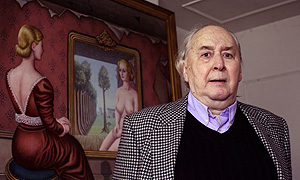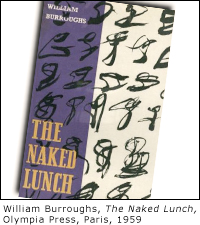Sunday Reads
Some Sunday morning reads (& an added game):
JG Ballard’s last short story, The Dying Fall, just published by the Guardian, here.
 J.G. Ballard in 2007
J.G. Ballard in 2007
There’s more pictures & writing on Ballard here.
*
If into French, check out Pierre Assouline’s Le Monde sponsored literary blog La République des livres here. I always find a couple wortwhile pieces to read there each week. Most recently an excellent piece on Pierre Michon, & a few days back a piece on the current mini-scandal as François Mauriac, the great old catholic Gaullist novelist is revealed — by his most recent biographer — to have been gay (though that was in fact what the French call a “secret de polichinelle.”)
*
Another report on another Palestinian youth killed by Israel: “Another Muted Scream,” by Sayed Mohamed Dhansay.
*
And now for the Sunday quiz!
Don’t bother with the so-called “Poetry Chronicle” by Joel Brouwer in the NYT Book Review this Sunday. Four books are being discussed. And the publishers are: Norton, Knopf, Knopf again, and Farrar, Strauss & Giroux. Here are some of the “verses” quoted. I’ll put the names of their authors in alphabetical order beneath. If you have not fallen asleep after reading the extracts, & have some time to waste, try matching the names to the lines. I, however, will not bother to give the answers — if you really want to know, you’ll need to check the NYT.
“Description is expiation, / and not a place to hunker down in,… It is a coming to terms with. / Or coming to terms without. / As though whatever we had to say could keep it real. / As though our words were flies, / and the dead meat kept reappearing.”
“In the bedroom they undressed and dressed / and got into bed. The silence was what fills / a tunnel after a locomotive passes through”
“From alley to boardroom, in coffee cup or coffer, / Not to accumulate but to count, to compare, / Brings down both the beggar and the millionaire”
“Soon after our father had struck himself down, / there had risen up these bachelors / beside the sink and stove, and the tiny / mastodons, and bison, and elk, the / beasts on my front and back, began, / atonal, as if around an early fire, to chant.”
“Dogged voluptuaries usually make straight / For the very thing they over and over have had, / Then vomit up the greedily swallowed bait”
“I’ve never been able to tell / what’s worth more — what I want or what I have.”
Enough already. And here are the whiners:
Dunn, Stephen
McClatchy, J.D.
Olds, Sharon
Wright, Charles
*
And if you haven’t had enough already, check out a more or less recent NYRB (the March 26 issue — happily the piece is not online) in which the BIG poetry review — after Simic’s snide dismissal of the Collected Creely (Simic likes small books) a few months back — is Helen Vendler’s canonizing of W.S. Merwin (well, he did get the Pulitzer a couple weeks later). After mentioning in the first paragraph all the poets born around the same year than Merwin, she sets herself to review Merwin with no further reference to the century he was born in or that century’s poetics. Obviously Vendler has in fact missed those 100 years, as her surprise realization that Merwin does not use initial caps or trad punctuation shows. In fact she is so amazed and worried about this, that she first quotes a Merwin poem with restored punctuation, and then again with more punctuation and restored caps (if memory serves, as I have meanwhile used that issue to wrap some trinkets for my upcoming move). Finally she reproduces Merwin’s version and has to admit that this new-fangled manner seems to work and that Merwin’s poem is readable even without commas and initial caps. The audience gasps. Someone rolls on the floor in orgasms of prurience…No, no, we’ve wandered onto another stage, that’s a scene from a William Burroughs novel… and quickly forgetting about Vendler who is clearly more fit for the nineteenth century (though, darn it, didn’t Blake use some weird punctuation at times?) than for the past & gone twentieth, let me just note that this is indeed the 50th anniversary of Naked Lunch, and there will be some major celebrations for the occasion in Paris. You can check out the details here.

*
And meanwhile, if you have nothing better to do and while waiting for Bloody Mary time, go and play ARTEROIDS, Jim Andrews’ first person shooter poetry game. Writes JA: “It’s currently being exhibited in Leipzig, Germany at D21 in a show called LET’S RESTART!!! curated by Michael Arzt. Leipzig is in what was the Communist sector of Germany. The show at D21 features five computer games/works of art. All the games are accessible via the Internet. They are for free public access.Here are some pictures from the opening at D21 in Leipzig: http://vispo.com/arteroids/leipzig . The D21 site is at http://d21-leipzig.de/restart where you can read descriptions of the games, links to the games themselves, and Michael’s introduction to the show.”
click or shoot here.

 “Todesguge/Deathfugue”
“Todesguge/Deathfugue” “Interglacial Narrows (Poems 1915-2021)”
“Interglacial Narrows (Poems 1915-2021)” “Always the Many, Never the One: Conversations In-between, with Florent Toniello”
“Always the Many, Never the One: Conversations In-between, with Florent Toniello” “Conversations in the Pyrenees”
“Conversations in the Pyrenees” “A Voice Full of Cities: The Collected Essays of Robert Kelly.” Edited by Pierre Joris & Peter Cockelbergh
“A Voice Full of Cities: The Collected Essays of Robert Kelly.” Edited by Pierre Joris & Peter Cockelbergh “An American Suite” (Poems) —Inpatient Press
“An American Suite” (Poems) —Inpatient Press “Arabia (not so) Deserta” : Essays on Maghrebi & Mashreqi Writing & Culture
“Arabia (not so) Deserta” : Essays on Maghrebi & Mashreqi Writing & Culture “Barzakh” (Poems 2000-2012)
“Barzakh” (Poems 2000-2012) “Fox-trails, -tales & -trots”
“Fox-trails, -tales & -trots” “The Agony of I.B.” — A play. Editions PHI & TNL 2016
“The Agony of I.B.” — A play. Editions PHI & TNL 2016 “The Book of U / Le livre des cormorans”
“The Book of U / Le livre des cormorans” “Memory Rose Into Threshold Speech: The Collected Earlier Poetry of Paul Celan”
“Memory Rose Into Threshold Speech: The Collected Earlier Poetry of Paul Celan” “Paul Celan, Microliths They Are, Little Stones”
“Paul Celan, Microliths They Are, Little Stones” “Paul Celan: Breathturn into Timestead-The Collected Later Poetry.” Translated & with commentary by Pierre Joris. Farrar, Straus & Giroux
“Paul Celan: Breathturn into Timestead-The Collected Later Poetry.” Translated & with commentary by Pierre Joris. Farrar, Straus & Giroux
Ah, Pierre, your Sunday Quiz, you are such a breath of fresh air. Sadly we know all too well where Vendler has spent her century.
*All* poets born in the same year as Merwin? How does she *know*?
Pierre, in fairness to Brouwer’s “Poetry Chronicle,” he does indeed dump on some of the poets he reviews. But the issue you raise is no less salient for this. Why review *these* poets? And the answer, as you suggest, has more to do with the presses reviewed than with the poets. Also in today’s NYTBR, a review of William Logan’s “Our Savage Art.” Would that the reviewer, Mark Ford, were as tough on Logan as Logan is with just about everyone else (though to be fair, again, Ford does offer some substantive criticism). But to be tough on Logan, you’d have to see him as upholding a very narrowly conceived poetic tradition. And that seems to be asking too much, sadly, of the NYTBR.